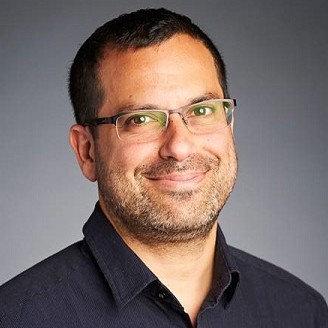 Increased DNA damage and DNA damage response (DDR) activation is well-documented in cardiovascular disease (CVD) and heart failure in humans, but no current treatment strategies exist to target this population. By applying cutting-edge optical, biological, and bioelectrical tools, McGowan Institute for Regenerative Medicine affiliated faculty member Tzahi Cohen-Karni, PhD, Associate Professor in the Department of Biomedical Engineering at Carnegie Mellon University, and his team will map cardiac tissue cell-cell communication and electrophysiology in response to stochastic endogenous DNA damage. Deeper understanding of the regulatory network that mediates the genotoxic stress response in the cardiac tissue will suggest preventive strategies and therapeutic interventions to reduce public health burden.
Increased DNA damage and DNA damage response (DDR) activation is well-documented in cardiovascular disease (CVD) and heart failure in humans, but no current treatment strategies exist to target this population. By applying cutting-edge optical, biological, and bioelectrical tools, McGowan Institute for Regenerative Medicine affiliated faculty member Tzahi Cohen-Karni, PhD, Associate Professor in the Department of Biomedical Engineering at Carnegie Mellon University, and his team will map cardiac tissue cell-cell communication and electrophysiology in response to stochastic endogenous DNA damage. Deeper understanding of the regulatory network that mediates the genotoxic stress response in the cardiac tissue will suggest preventive strategies and therapeutic interventions to reduce public health burden.
This project, entitled “Mapping the cell specific DNA damage-induced molecular and bioelectrical responses in the 3D cardiac unit,” will run for 5 years. It is funded by the National Heart, Lung, and Blood Institute.
The project abstract follows:
This project will test the hypothesis that DNA damage in cardiomyocytes activates p53 leading to mitochondrial alterations and secretion of paracrine factors that drive heart failure. The premise for this has been established from our preliminary data and from the work of others. First, DNA damage and activated DNA damage response (DDR) have been observed in cardiovascular disease (CVD) in humans. Second, studies also show evidence that multiple cell types in the cardiac unit, including cardiomyocytes (CM) and cardiac fibroblasts (CF) display markers of DNA damage and cellular senescence in several disease pathologies. Third, we have recently identified that nuclear DNA damage drives dilated cardiomyopathy. Specifically, cardiomyocyte-depletion of the DNA repair endonuclease, ERCC1-XPF in mice, upregulates the DNA damage response gene, p53, and leads to irregular mitochondrial cristae, accumulation of lipids and increased oxidative stress. Additionally, there is an increase in several cardiac failure and senescence associated markers. However, the exact molecular underpinnings and cell-specificity of these DNA damage-induced changes is poorly understood. One barrier to addressing this question in vivo has been lack of appropriate tools, where DNA damage can be introduced in only one cell type (e.g., CM) and its effect on CF and cardiac function can be investigated. Additionally, 2D cell culture and co-culture systems fall short, as they cannot reproduce tissue dynamics present in a cardiac unit. Herein, we have developed several tools which enable the study of cell-cell communication of 3D multicellular system. Specific Aim 1 will map the molecular, functional, and architectural changes upon loss of ERCC1 in CM. In this aim, we will test the mechanistic role of p53 and reactive oxygen species on a number of cellular and mitochondrial parameters, as well as cardiomyocyte electrophysiology. Specific Aim 2 will test whether stochastic, spontaneous DNA damage in the CM or CF drives cardiac electromechanical dysfunction in a cell autonomous or cell non-autonomous manner through a paracrine effect on neighboring cells. Here, we will analyze the pathological secretome upon genotoxic stress, as well as test the role of eliminating senescent cells on cardiac health. This work is technically innovative as it uses a number of unique tools including concomitant optical and bioelectrical measurements in 3D cardiac organoids. These contributions will be significant because DNA damage is unavoidable and intimately linked to cardiac health and disease. Our team is uniquely qualified to perform this work, with expertise in DNA damage/repair, cellular senescence, nanofabrication, human iPSC-derived cardiac tissue engineering, and data science. This analysis, we believe, will increase our fundamental understanding of the connection between DNA damage and heart disease and potentially pave the way for new treatment strategies.
Read more…
